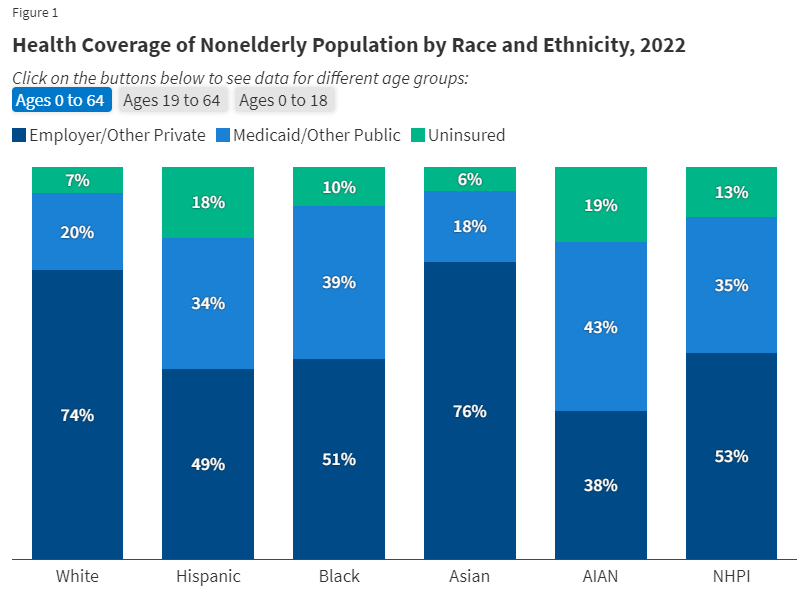Medicaid Efforts to Address Racial Health Disparities
Racial and ethnic disparities in health remain persistent in the United States, driven by inequities in access to and utilization of health care and social and economic factors that drive health, often referred to as social determinants of health (SDOH), that are rooted in historic and ongoing racism and discrimination. As a major source of health coverage for people of color, Medicaid programs are an important potential mechanism to address racial health disparities. Recent coverage gains across racial and ethnic groups between 2019-2022 were largely driven by increases in Medicaid enrollment as disenrollments were paused for three years during the pandemic related continuous enrollment provision. However, unwinding of the continuous enrollment provision could have disproportionate effects on people of color.
The federal government and many states have identified advancing health equity and addressing health disparities as a key priority. This includes President Biden’s Executive Order 13985 that directs federal agencies to take steps to advance racial equity. Other key efforts including improving collection and reporting of race and ethnicity data and focusing on maternal and infant health. While some efforts are broad, a number of efforts are specific to Medicaid. Medicaid coverage and other initiatives can help to address racial health disparities, but broader efforts to address structural racism and inequities within and beyond the health care system will also be key for reducing health disparities.
This issue brief aims to provide greater insight into key ways in which Medicaid can be leveraged to help address racial health disparities, drawing primarily from health coverage data, the 2023 KFF Budget Survey, and analyses from the KFF 1115 waiver tracker. While this brief documents some activities that states are implementing, take up of these initiatives varies across states and additional data are needed to determine if these efforts are effective at reducing disparities. Beyond the topics covered in this brief, states are engaged in other efforts to address racial health disparities in Medicaid and more broadly, including improving the collection and reporting of race and ethnicity data, establishing infrastructure to prioritize health equity, engaging with community to inform policy, and enhancing workforce capacity to provide culturally and linguistically appropriate care. This brief examines three key questions:
- How does Medicaid coverage vary by race and ethnicity?
- How can Medicaid eligibility policies mitigate racial disparities in coverage?
- What other Medicaid initiatives are states pursuing to address racial disparities in health and health care?

